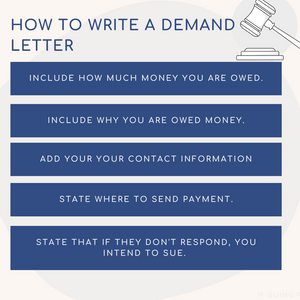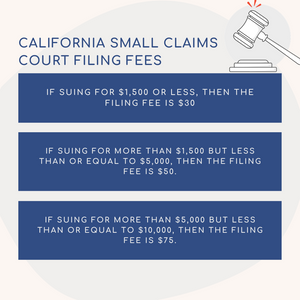Contents
Have a dispute with Alliance Residential over your security deposit, early termination, or rent overcharges? Now what? You have several options, including suing Alliance Residential in Small Claims Court.
In this article, learn about:
Before suing in California Small Claims Court.
How to write a Demand Letter.
Small claims court limits.
How to file a small claims lawsuit against Alliance Residential.
California Small Claims Costs.
Fun fact, lawyers are not allowed at the initial small claims hearing! This is to even the playing field so that each party has an equal chance of obtaining justice.
Alliance Residential is one of the largest owners of Rental Real Estate in California with thousands of tenants and multiple properties across Northern and Southern California. It manages its properties through a series of LLCs and other business entities. We have created a list of options for what to do when you face a dispute with Alliance Residential.
Speak with the Property Manager
The first thing to do when a problem arises is to reach out to the property manager for your rental unit. They are sometimes referred to as community managers by Alliance Residential. They may even be the same person that gave you a tour of the property before you signed a lease. However, the property manager's ability to make decisions will sometimes be limited and you may need to escalate the situation. If your property manager is unhelpful in resolving the matter, then it is time to go a different route.
Send a Demand Letter
A demand letter is a letter that outlines a set of requests. For example, if Alliance Residential unreasonably kept your security deposit, you would demand Alliance Residential to return the full deposit or the portion you are contesting.
If you eventually decide to sue in California small claims court, you are required to first request your money or property back before you can file the lawsuit. While you can request your money or property back orally, it is recommended you do so in writing in the form of a demand letter.
What to include in the demand letter?
A demand letter is a letter that outlines a set of requests. For example, you could request a refund and explain why you are requesting a refund.
If you eventually decide to sue in California small claims court, you are required to first request your money or property back before you can file the lawsuit. While you can request your money or property back orally, it is recommended you do so in writing in the form of a demand letter.

What to include in the demand letter?
Unsure of what to include in your demand letter addressed to Alliance Residential? Here are a few suggestions:
How much money you are owed.
Why you are owed money.
Your contact information.
Where to send payment.
Give them a few days to respond (usually about 7 to 14 days).
State that if they don't respond, you intend to sue.
If your problem with Alliance Residential relates to your security deposit, you can use the California Court's security deposit demand letter-writing tool to help you write the demand letter.
Where to Send the Demand Letter
Once you have drafted your demand letter to Alliance Residential where should you send it?
You should email or mail a copy of the letter to the leasing office and mail a copy to one of Alliance Residential's offices. Alliance Residential's headquarters are in Phoenix, AZ, and it has two main offices in California.
You can choose the nearest city to your location:
CORPORATE HEADQUARTERS
2525 E. Camelback Road
Suite 500
Phoenix, AZ 85016
NORTHERN CALIFORNIA
477 Pacific Avenue
Suite 1
San Francisco, CA 94133
SOUTHERN CALIFORNIA
Irvine Area
2462 Dupont Drive
Irvine, CA 92612
San Diego Area
1 American Plaza
600 W. Broadway
Suite 2630
San Diego, CA 92101
Small Claims Court
If Alliance Residential ignored your demand letter, what can I do next? You can sue Alliance Residential in small claims court. But first, some background on small claims court in California to determine if it is right for you.
Types of Cases that Can be Filed in Small Claims
So long as there isn't another court better suited to hear the case, then the lawsuit can be filed in small claims. If your dispute with Alliance Residential is about your security deposit, early termination penalties, or rent overcharges, then a small claims court would be able to handle your dispute.
Small Claims Court Limits
To be able to file a small claims court lawsuit in California, you are capped at the amount you can sue for, also known as "small claims court limits."
If you are owed for more than the amount you can sue for, you can still sue for the maximum amount allowed, but you will need to waive any additional amount over the limit.
What are the California Small Claims Court Filing Fees?
The amount you will pay to file a small claims lawsuit in California depends on how much you are suing for. You will pay between $30 to $75 to file the lawsuit. If cannot afford to pay court fees, you can ask the court to waive the fees.

What are other costs for Small Claims Court?
In most small claims cases, you can expect to pay:
Filing fees (see above) $30- $75
Serving Costs can range from $0-$75 per person you sue.
If you win, you can request that the losing party pay for your court fees and serving costs.
Who to Sue in Small Claims Court
As we previously mentioned, Alliance Residential manages its properties through a series of LLCs and other business entities. To know which is the correct entity to sue, you need to pull up a copy of your lease. Usually, on the first page of the lease, you will find the correct entity name under "landlord's name" or "owner's name." When you begin to fill out your small claims court paperwork, you will list this entity as the "defendant."
Starting the Small Claims Court Lawsuit Against Alliance Residential
Step 1: Fill out "Plaintiff's Claim and Order to Go to Small Claims Court" (Form SC-100)
Filling out this form starts the California Small Claims Court lawsuit process.
It is also known as the "complaint" or "claim."
This is the first document you need to file if you are suing someone. You can download it here.
The form will ask who is the agent for service of process. Using the entity name you found on your lease for Alliance Residential, you can search for the Agent for Service of Process on the California Secretary of State's Website.
Step 2: File "Plaintiff's Claim and Order to Go to Small Claims Court"
Each California Small Claims Court has a different procedure for filing.
You have to check with your local small claims court whether they allow filing in-person, by mail, online, or by fax.
We can file your case for you!
Step 3: Serve Alliance Residential
Once you file your California small claims court lawsuit, the next step is to
notify Alliance Residential that they have been sued. This is called "service of process" (also known as "service").
You must serve Alliance Residential at least 15-20 days before the small claims court hearing.
There are several ways you can serve Alliance Residential including by having a friend serve, hiring a process server, hiring the sheriff, or through the court clerk.
We can help you with serving Alliance Residential
How to prepare for a Small Claims Court Hearing?
You have filed your case and notified the person you sued. The next step is to start preparing for your Small Claims Court hearing.
Research the law. If you are unsure about you the laws involving your lawsuit (aka why you should win your lawsuit), consult an attorney, or conduct your own research about the law (a quick Google search goes a long way).
Prepare your evidence. Invoices, contracts, receipts, etc. You want to have your evidence organized with titles, dates, and why that piece of evidence is important. All your evidence should be geared towards showing the judge why you should win.
Prepare what to say. During the hearing, the judge will ask you why you are suing. If you are being sued, you will be asked why you don't owe the other party money.
Get your receipts for costs ready. For example, your filing fees and any process server costs. Make sure to let the judge know that you would like to be reimbursed for these costs.
Print enough copies of all your evidence. You will need at least three copies (one for you, one for the judge, one for the other side).
Alliance Residential cannot have an attorney at the small claims court hearing
Attorneys are not allowed to represent you or the person you sued at the initial hearing.
If the person you sued appeals (meaning they lost and want the judge to decide again) then attorneys are allowed to represent the parties at the appeal hearing.

Camila Lopez, Esq.
Attorney at JusticeDirect. Camila holds a law degree and is a certified mediator. Her passion is breaking down complicated legal processes so that people without an attorney can get justice.

